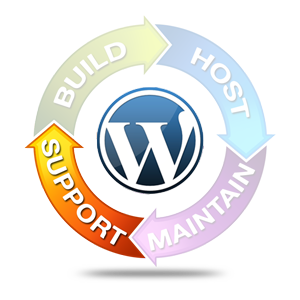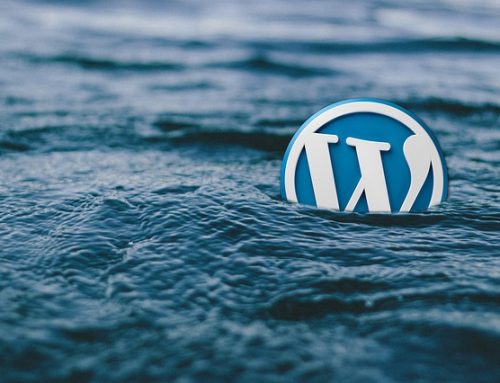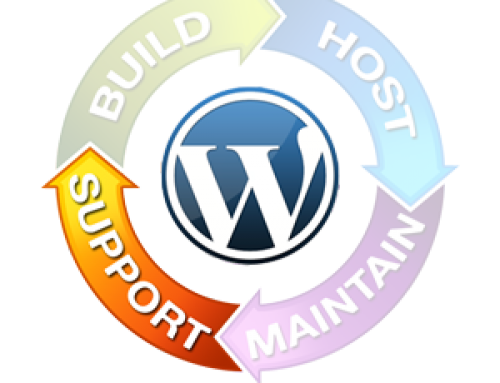Seldom does a week go by when I don’t get a call asking what to do with a hacked WordPress website. Sometimes after taking a closer look we learn that the site hasn’t been attacked. Sadly, not everyone is so fortunate. So, I’ve taken my responses and compiled them into a blog post on how to respond to a malicious WordPress attack.
Whether you are a blogger or business owner, a hacked website is not the news you want your site administrator to give you. A hacked WordPress sites give criminal syndicates and lone scammers an opportunity to use your resources and the compromised server to carry out illegal activities online or to serve their self interest.
What’s in it for Hackers?
You may be wondering “Why would someone want to hack my site?” Well there are many reasons:
- To Shield Their Activities with Your Site– Hackers may use your server account and WordPress site to send mass emails covertly or to host prohibited content. In such circumstances, your website could be promoting copyrighted video streams, downloadable pirated software, and counterfeit products – without your knowledge.
- Host Malicious Scripts – Some hackers will use your compromised server and WordPress site to host malicious scripts and applications.
- Distribute Viruses – Hackers can also use your server and WP website to distribute viruses, worms, spyware applications, and other malicious scripts.
- Access Personal Data – Some hackers only want to access your site’s database. This is especially true if you store confidential user data and personal details that might be useful to hackers.
Additionally, some hackers are just hell-bent on taking your website down solely for bragging rights. Often, competitive hackers operating alongside competing hackers and hacking communities. In some instances, it can be difficult to ascertain the motive behind the hacking. Your WordPress website is vulnerable to any of or a combination of the reasons stated above.
How to Keep and Protect Your WordPress Site from Hackers
So, what can you do to prevent a hack of your WordPress website? Quite naturally, you should make it a priority to protect your wordpress site from hackers & secure your server against any and all possible attacks.
Here are a few scenarios that may make your WordPress site vulnerable to hackers or malicious bots, and some ways of how you can prevent or fix them.
Admin Username Vulnerability – Admins username vulnerability is crucial. WordPress has a default username for all website administrators, ‘admin.’ If you use this username, you become very susceptible to hackers. Since this is the default username, hackers will usually try to key this in first, before trying out other options. To avoid this, change your username into something unique. You want to have a username that only you and your site administrators know.
Themes & Plugins with Malicious Code – Having multiple free and paid WP themes and plugins from third parties is a vulnerability that’s exploited by a lot of hackers. Although WP themes and plugins can add functionality to your website, they can also expose your WordPress site and server to attacks.
You can prevent this by using WordPress themes and plugins from trusted and verified sources.
However, what if some have already hacked your WordPress site? Below we share some of the things that you can do to recover and get back to your online business or blogging activities.
What to Do When Your WordPress Site Gets Hacked?
First, remain calm and thoroughly test your website. What is the nature or extent of the hacking? You can determine this by checking whether you can still log in to your account, or if you get redirected to websites that are totally unrelated to your business. Once you know this, you can proceed with troubleshooting your account. If you don’t have the technical expertise to carry out this activity, it’s best to hire a professional to get this done.
Second, run a local clean up. A local clean up means you should run scans to determine if malicious code is causing the failure, which was able to penetrate your site and server. You can fix the problem by using your anti-malware tool to remove any malicious script that may have been embedded in your site or stored on your server.
Third, try updating everything. Not being able to access your website is not always an indication that hackers got to your site, you may just need to do some updating. An old or out of date plugin could easily cause your site to have problems.
Fourth, change your login information. It is important to change your WordPress login credentials, FTP access details, and CPanel passwords. Do this as soon as you suspect that your site has been hacked or compromised. Change your login details to a stronger username and password. You want it to be difficult for hackers to guess your login information, this is especially the case for automated scripts that use brute force tactics.
Fifth, enable anti-bot tools. You want to enable anti-bot tools for the Web forms on your WordPress site. Many hackers enter malicious code into unprotected Web forms by using automated scripts. The technique gives them unrestricted access to your WordPress site and server. By activating these anti-bot tools, these scripts won’t be able to enter malicious code into the Web forms of your WordPress site.
Sixth, ask others to change their login information. It is critical that in addition to changing your login information, that you ask your admins, subscribers, and content contributors to change their usernames and passwords for your WordPress site, server, FTP access and self-hosted emails. In some instances, a hacker may be using these accounts to send out spam or access your server’s storage resources.
Going forward, it is important to keep your files safe and back everything up. This due diligence will help you restore your website without issues if your WordPress site is the victim of a hack in the future.
You can prevent hacker attacks by just learning more about WordPress; this knowledge helps keep you informed as to the vulnerabilities of this CMS (content management system) and how hackers are able to exploit these issues.
WordPress is a hugely popular CMS for many business owners. It is a useful tool for sharing content without touching the technical world of programming and coding. However, you need to know some basic website management and blogging techniques, so that you can fully appreciate the value of WordPress. There’s no reason to worry, since using WordPress is as easy as 1-2-3, even for first-timers.
Things You Need to Know About WordPress
WordPress may be a popular CMS, but not everyone knows how to use it. There are still many who don’t know where to begin, all of which makes them more vulnerable to attack. Here are three things you should know about WordPress:
- WordPress is a free, open source CMS.
WordPress is a free-to-use CMS that allows you to create your very own and unique website. You can also modify this CMS to best suit your needs, especially if you have custom scripts and functionality for operating your site and e-commerce stores. There are also thousands of themes and plugins available for WordPress, and many of them are FREE.
- You don’t need web coding and programming skills to use WordPress.
It is a very common misconception that you need web development and coding language knowledge and expertise to use and run a WordPress site. One of the best things about WordPress is that it’s quick and easy to use. You just have to know some basic computer skills to start up your own online business through WordPress. However, it will still be more advantageous to have in-depth blogging and website management skills to have full control over your site.
- WordPress isn’t just for bloggers.
WordPress is more popular as a CMS for bloggers. However, WP has evolved over the years, adding some advanced functions that are not only useful for bloggers, but also for membership site owners, vendors, merchants, and ecommerce store administrators, among others. Since it is a free tool, you can take advantage of it and introduce your products, services, or even hobbies to the online community. There are just so many things you can do with WordPress. All you need to do is explore and be creative.
Now that you’re aware of some of the basic things about WordPress, it will be easier for you to start to explore any emerging problems you may have with your site. Knowing these things will allow you to troubleshoot any issues that you might encounter while managing your site.
Problems Associated with WordPress
At first glance, WordPress may look like the perfect website solution, but this CMS also has its set of limitations and shortcomings. Although you can fix these issues with some knowledge of WordPress, it’s still bothersome for those who don’t know how to troubleshoot WordPress. So, here are the potential problems that you might encounter while using WordPress.
WordPress security isn’t iron clad
Security is the number one problem with WordPress. The WP CMS significantly lacks protective tools and sufficient security protocols. To keep your business and personal information safe, you need to take a few extra measures in managing your site. Hacking affects thousands of WordPress accounts. This vulnerability can be very dangerous, especially to business owners, because it can put an end to your business.
Given WP’s inherent weaknesses, one thing you can do is install your site onto a managed WordPress hosting account. These types of hosting plans make it much more difficult for intruders to get in and some of them will fix the mess for you if your site does get hacked.
WordPress sites load slower
For many site owners, a slow loading website is quite a serious problem, because not all your viewers will have the patience to wait for your site to load. A page that takes even a few seconds longer can make or break your business. Furthermore, since malicious scripts can slow your site down, unless you proactively work to speed it up, you could have a difficult time distinguishing between a site that’s slow because it’s not optimize versus a WP site that’s been hacked.
Accordingly, many WP site owners use plugins and third party content distribution providers to improve their content loading speeds.
It’s easy to identify WP sites
Since most WordPress sites have feature a common architecture it’s not difficult for a random individual to look at your site and know that it was built with WP. Even when webmasters use unique themes and take steps to conceal any WordPress footprints, it’s still fairly easy to determine whether it was built on the common CMS platform.
For example, if you add “/wp-admin” to the end of the domain (www.abcdomain.com/wp-admin), navigate to the page, and land on a login page, you know you’re looking at a WP site. Unfortunately, hackers know this too and this makes it easy for them to gain entry into your site. One way to hide your WP login page is to install a custom login plugin.
Again, not every WordPress site owner will experience a malicious site attack. Nonetheless, it is important that you know how to address these issues before they crop up. After all, being proactive now could save you lots of time and money in the long run and may even prevent hackers from harming your website.



